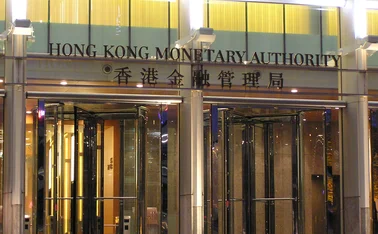
Asian central banks co-ordinating CBDC work in ‘near real time’
RBI deputy governor says Seacen members tend to use public-key cryptography in their design

Members of the South East Asian Central Banks (Seacen) alliance are developing central bank digital currencies (CBDCs) in tandem, with almost immediate updates.
In a speech on February 15, deputy governor of the Reserve Bank of India Michael Patra said members were “actively co-ordinating their efforts to develop CBDCs, with near-real-time exchanges of information on progress”.
Seacen’s members are at various stages of developing their CBDCs. However, Patra said: “The central tendency seems to be a CBDC design under a two-tier hierarchical structure implemented by using public-key cryptography.”
A public key is a large number used to encrypt and send a message. This message can only be decrypted using the recipient’s private, or secret, key.
Various Seacen members have in recent months announced plans to advance their work on CBDCs.
Earlier this month, the Central Bank of the Philippines announced it is likely to issue a wholesale CBDC within two years. Bank Indonesia said in December that it would be going ahead with trials for the digital rupiah for wholesale interbank settlement in 2024. Bank of Korea announced in November that it would also launch a pilot scheme this year for a CBDC involving 100,000 citizens.
Seacen members are also in the process of linking their fast retail payments systems. Last February, it was announced that India’s UPI was being interlinked with Singapore’s PayNow system. Schemes linking Hong Kong and Thailand, and Singapore, Malaysia and Indonesia, were also announced last year.
Seacen has its origins in the annual meetings of governors of South-east Asia’s central banks. The alliance was founded in 1982 by eight central banks and monetary authorities. Today it has 19 full members including China, Hong Kong and Taiwan. It also has eight associate members and eight observers, including Iran, Afghanistan, Japan and Australia.
Only users who have a paid subscription or are part of a corporate subscription are able to print or copy content.
To access these options, along with all other subscription benefits, please contact info@centralbanking.com or view our subscription options here: http://subscriptions.centralbanking.com/subscribe
You are currently unable to print this content. Please contact info@centralbanking.com to find out more.
You are currently unable to copy this content. Please contact info@centralbanking.com to find out more.
Copyright Infopro Digital Limited. All rights reserved.
You may share this content using our article tools. Printing this content is for the sole use of the Authorised User (named subscriber), as outlined in our terms and conditions - https://www.infopro-insight.com/terms-conditions/insight-subscriptions/
If you would like to purchase additional rights please email info@centralbanking.com
Copyright Infopro Digital Limited. All rights reserved.
You may share this content using our article tools. Copying this content is for the sole use of the Authorised User (named subscriber), as outlined in our terms and conditions - https://www.infopro-insight.com/terms-conditions/insight-subscriptions/
If you would like to purchase additional rights please email info@centralbanking.com
Most read
- ECB says iPhone is currently incompatible with digital euro
- Supervisors grapple with the smaller bank dilemma
- ‘Do I die, or do I survive?’ Officials reflect on Basel III complexity








